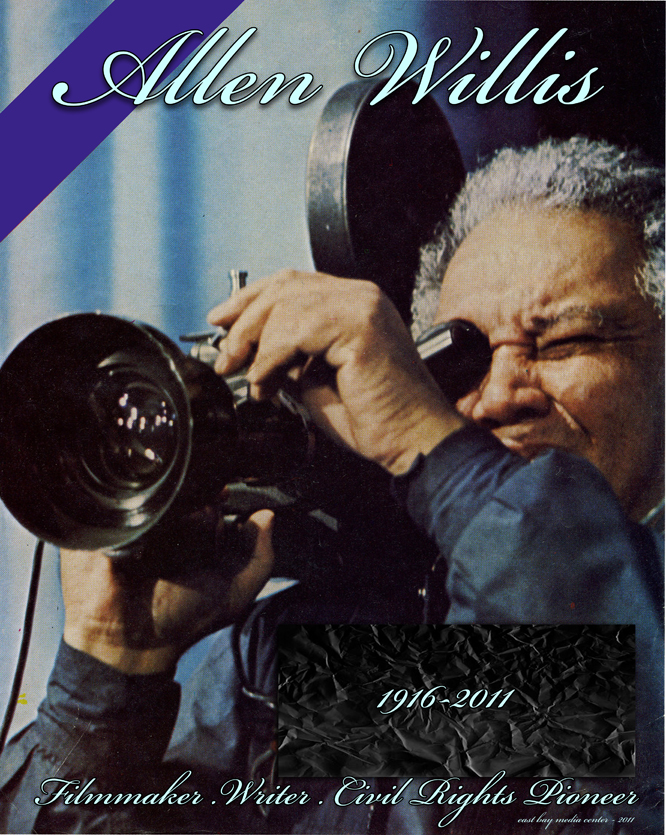
Home
History
Membership
Equipment Rentals
Editing
Duplication
DVD Duplication
Archival Media Preservation
Summer Media Camp
Seminars
Allen Willis Archives
Fiscal Agent
Project Consultation
Berkeley Video & Film Festival
Used Equipment for Sale
Event Documentation
Contact Us
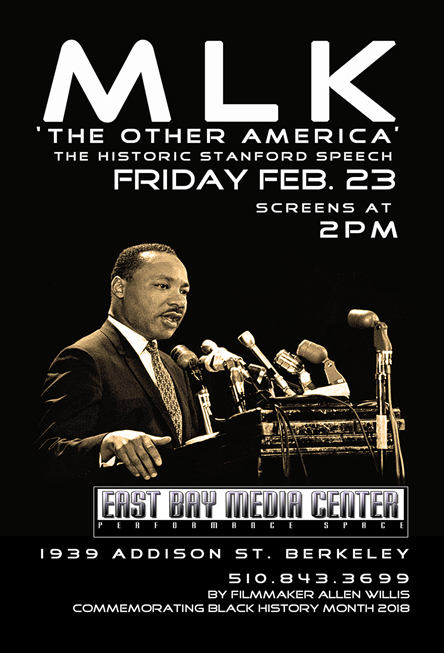
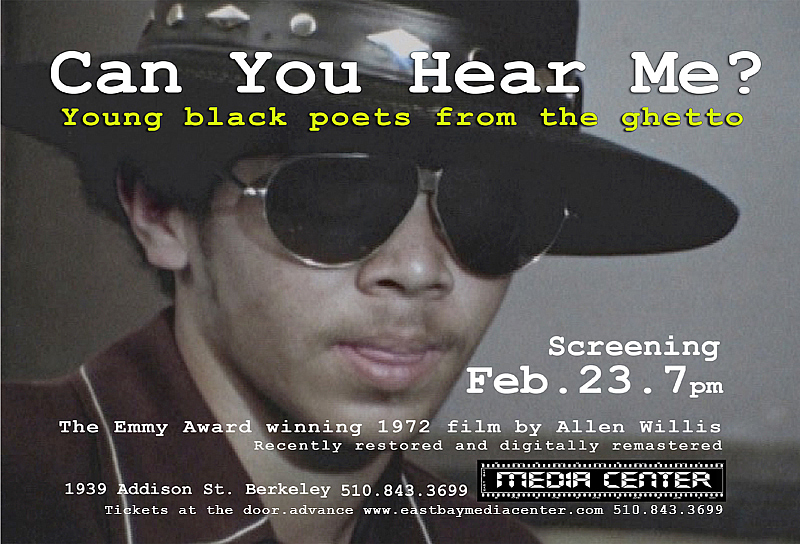
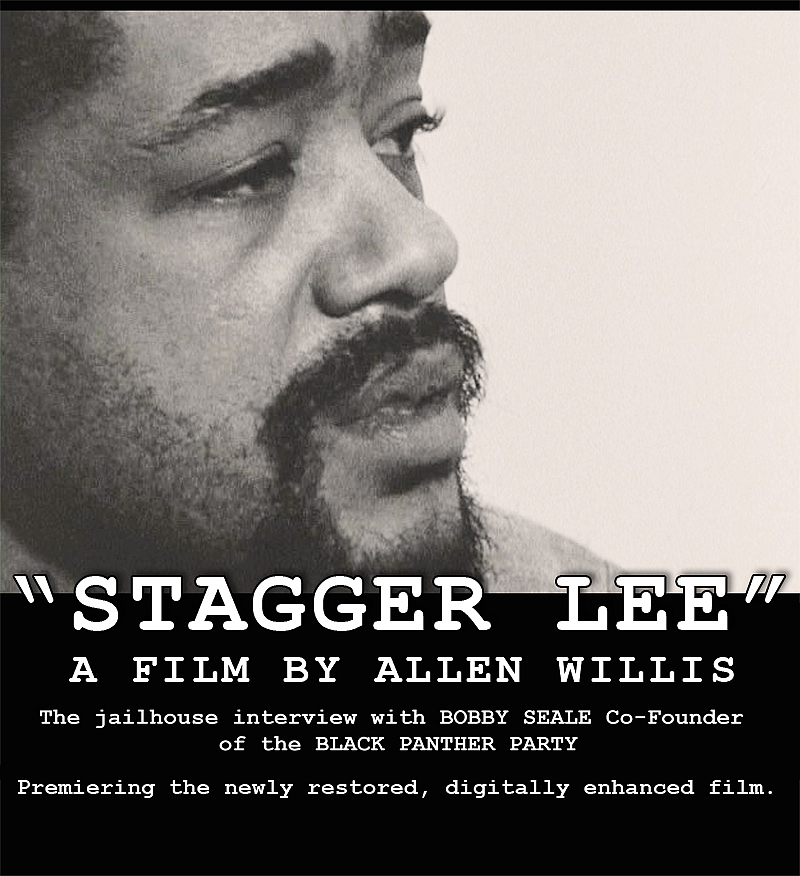
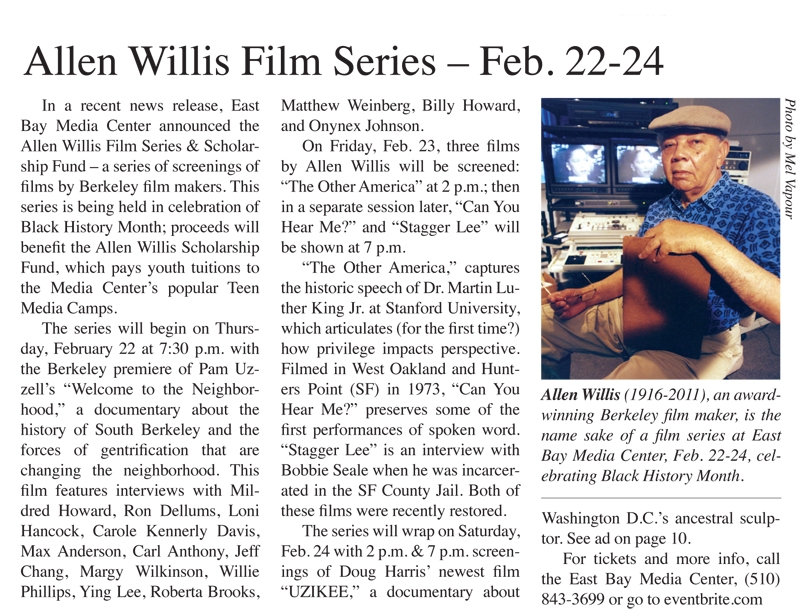
Use the Donate Button below to purchase the $5.00 Donation tickets for any of the film screenings of
ALLEN WILLIS' films on February 23 at EBMC.
_____________________________________________________________________________________
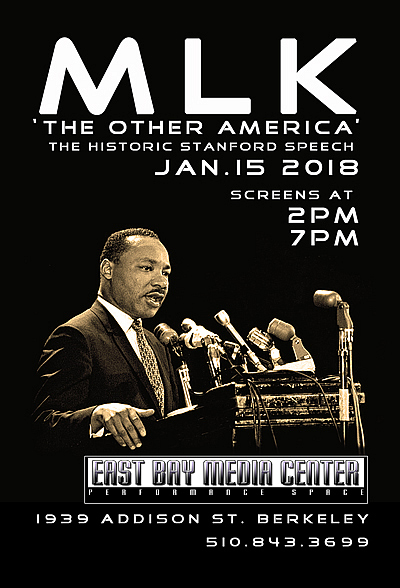
ADMISSION IS FREE - BOTH SCREENINGS - LIMITED SEATING

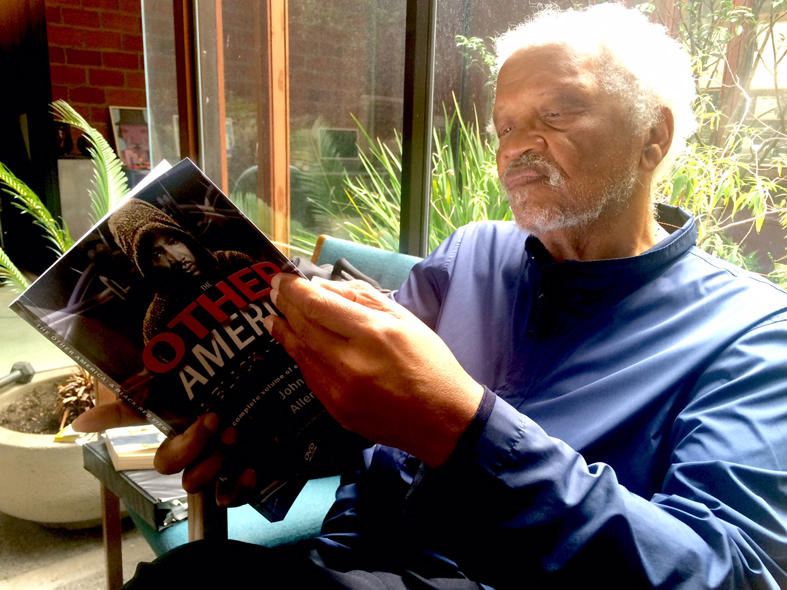
THE PSYCHEDELIC EXPERIENCE - FEATURED IN VICELAND
Darrell Lemaire - Jean Millay
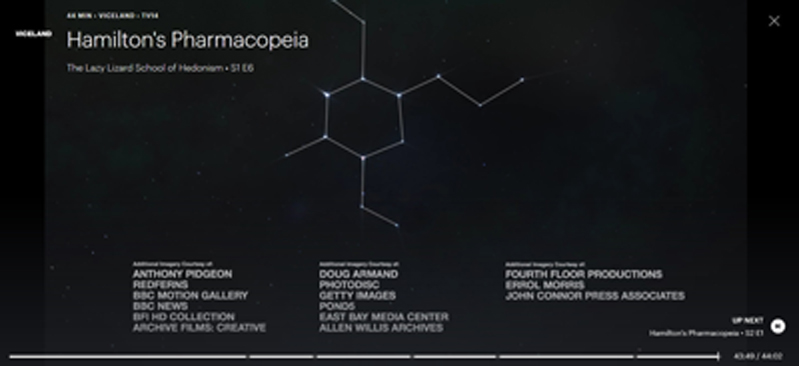
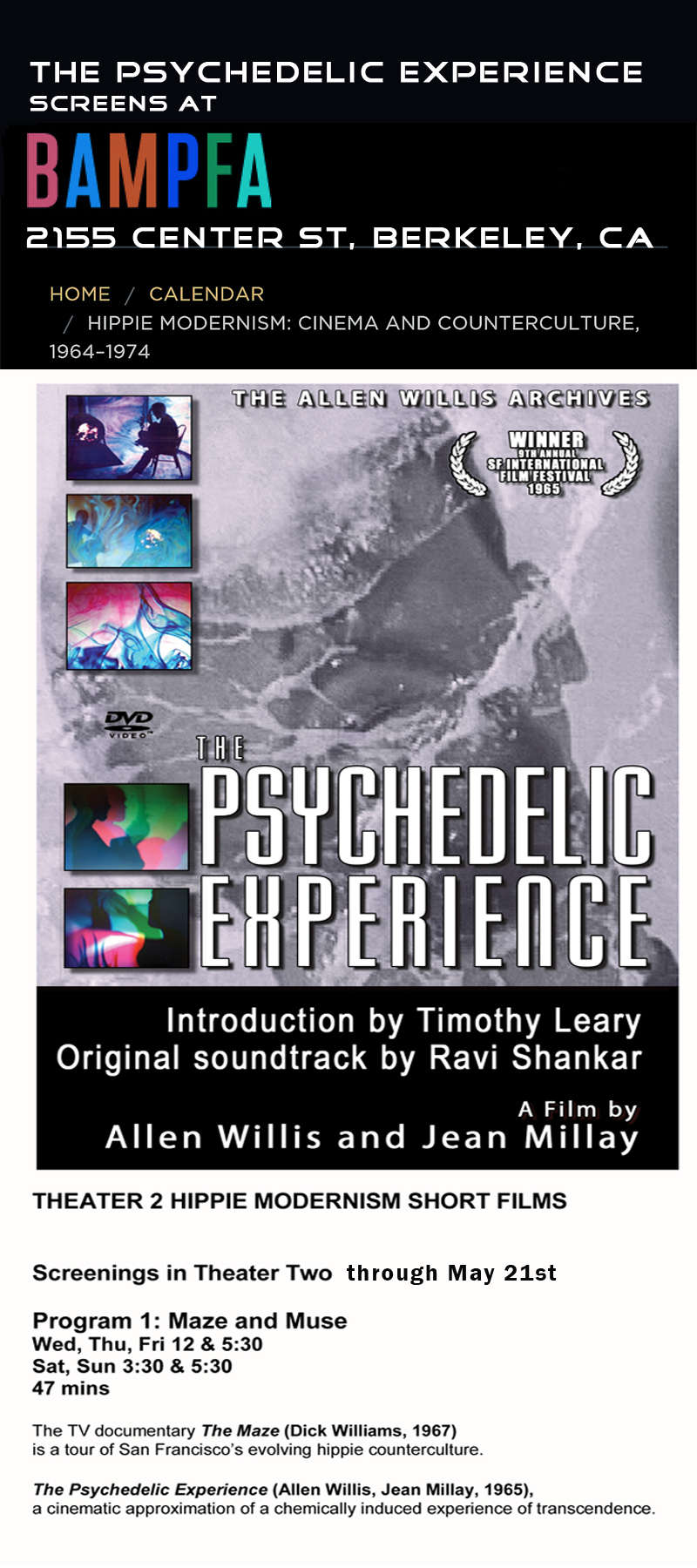
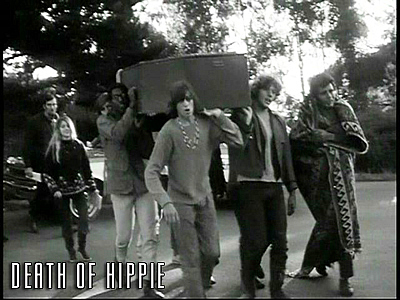
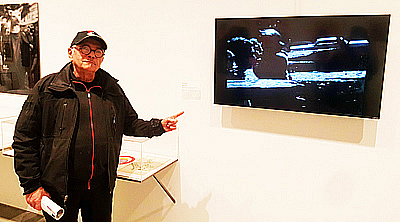
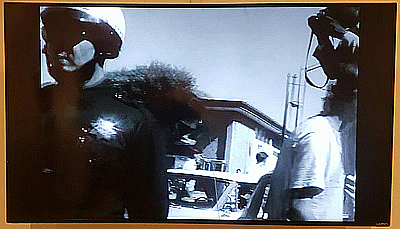
above: 'DEATH OF HIPPIE" film installation at BAMPFA
Allen Willis' "DEATH OF HIPPIE" - on display at BAMPFA galleries in Downtown Berkeley, circa 1967, documenting THE DIGGERS declaration that Hippie was dead in the Haight and San Francisco. Willis filmed this seven minute short doc; it has been looped for the exhibition. Originated in 16mm film, included in the HIPPIE MODERNISM: THE STRUGGLE FOR UTOPIA Exhibition, launched in Minneapolis at the WALKER ART CENTER in October 2015. The Berkeley exhibition continues through May 21, 2017.
Special Thanks to Andrew Blauvelt, Curator, Walker Art Center
and
Kathryn MacKay, Associate Film Curator of the BAM / PFA.
_____________________
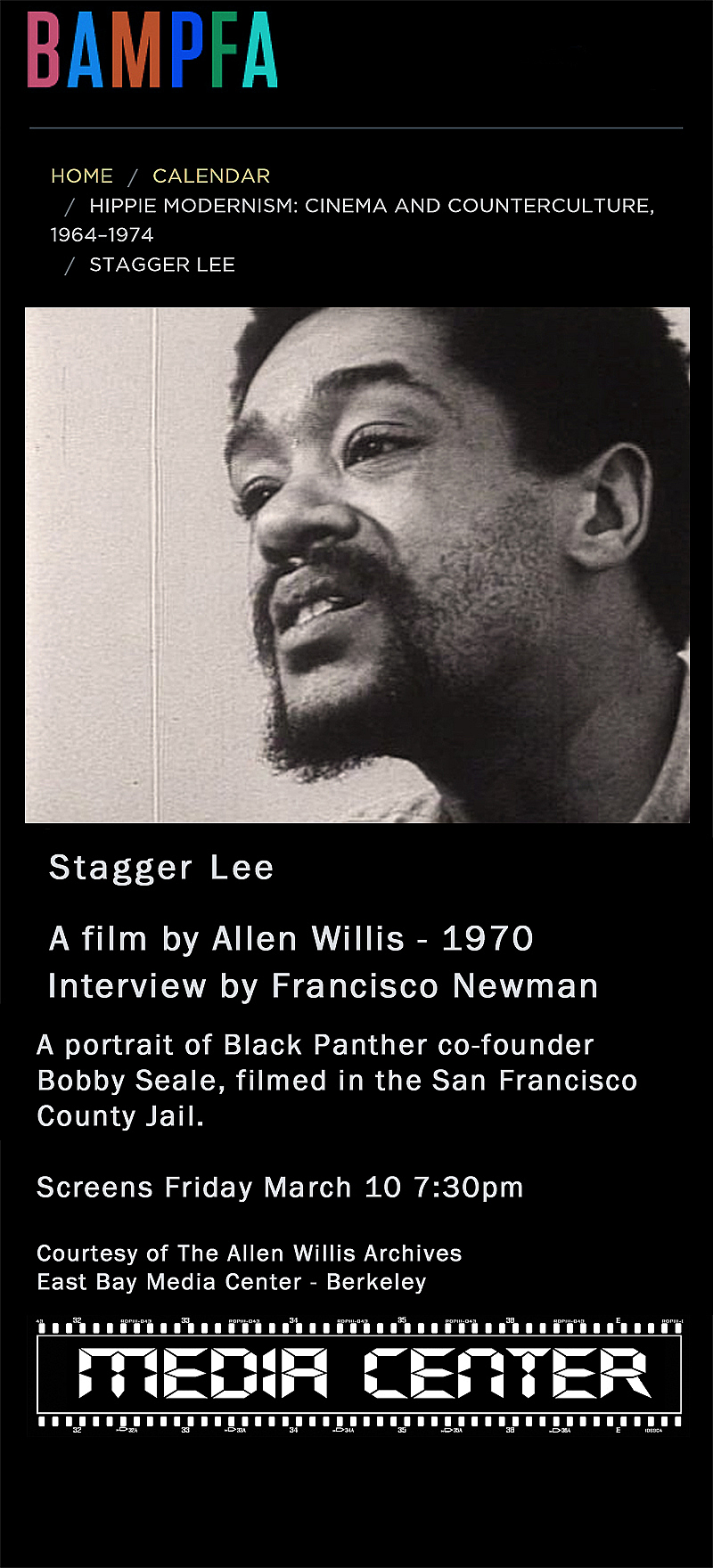

Book Launch of 'THE OTHER AMERICA' by Allen Willis aka John Alan
Sunday June 5 - 2:00pm at East Bay Media Center during the weekend of the
Bay Area Book Festival in downtown Berkeley. Screening Allen Willis films
and a discussion about his work and the newly independently published book by EBMC.
The book will be available for purchase.
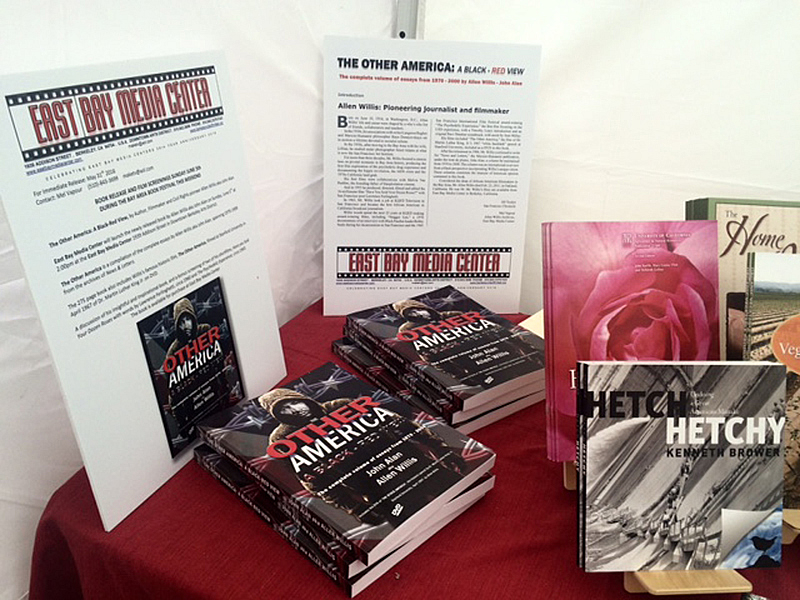
THE OTHER AMERICA: A Black - Red View, by Allen Willis at the Heyday Books booth Sunday, June 5, 2016
at Bay Area Book Festival in Downtown Berkeley

ISHMAEL REED with Allen Willis' THE OTHER AMERICA: A BLACK-RED VIEW
photo: Kealoha 6.2.16
Dear Friends and Community,
Our esteemed, elder Board of Director,
Allen Willis
passed away on February 23, 2011.
His distinguished career as a filmmaker, photographer
and writer will continue to enhance our lives.
He left us with great historical documentaries,
films and writings, several available from our Center.
We shall miss him dearly.
______________________________________________
ALLEN WILLIS had the distinction of being the dean of African American filmmakers in the San Francisco Bay Area. Those who know the rich history of the area's independent filmmaking community acknowledged him as the founding father. He worked for the San Francisco public broadcasting station KQED-TV from 1963 to 1983 and was the first African American news and documentary cinematographers in the Bay Area.
EAST BAY MEDIA CENTER is the official archivist for the works of ALLEN WILLIS. His extensive filmography is currently being catalogued and made available to the general public, museums and collections.
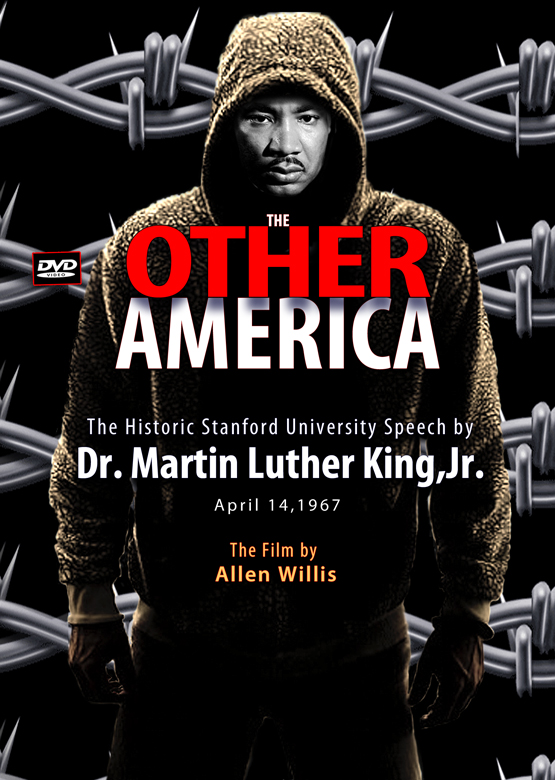
THE OTHER AMERICA - DVD $50.
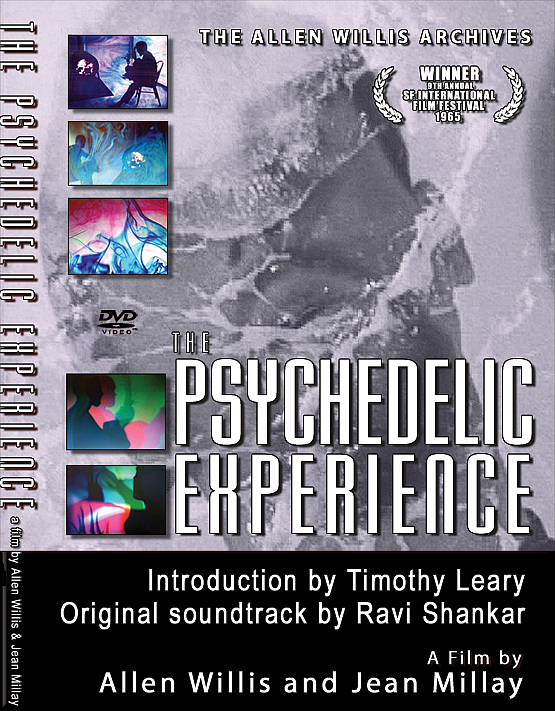
THE PSYCHEDELIC EXPERIENCE - DVD $50. + $6.45 SHIPPING

FILMOGRAPHY
The Wedding; The Pickup Truck; The Boy; with Melvin Van Peebles - 1949 - 1953
Have You Sold Your Dozen Roses? - 1959
Commute - 1956
Annie Lee Ritchie - 1963
The Psychedelic Experience - 1965
The Other America - 1967
Stagger Lee - 1970
Spirit in the Dark - 1971
Drugs in the Tenderloin - 1973
The Great California Land Grab - 1973
1001 Days - 1974
Para-Psychology - 1974
Can You Hear Me? - 1975
There Is A There There - 1975
Hurrah for Anything - 1982
Love on the Rocks - 1986
Karla - 1992
San Francisco BEAT - 1973 +1993(edit)
AWARDS & HONORS
Stanford University Commemorative Award for THE OTHER AMERICA - April 15, 2007
East Bay Media Center Tribute at Pacific Film Archive - 1989
Proclamation from City Of Berkeley - 1989
Black Filmmakers Hall of Fame Tribute - 1983
San Francisco Museum of Modern Art - 1980
Emmy Award - "Can You Hear Me?" - 1975
Peabody Award - Newsroom - KQED-TV - 1974
Emmy Award -"1001 Days" - 1974
DuPont - Columbia University Journalism Award - 1973
Emmy Award - "Spirit in the Dark" - 1971
National Educational Television Award for Excellence - 1967 "Drugs in the Tenderloin"
San Francisco International Film Festival - Zellerbach Award with Jean Millay - "The Psychedelic Experience" - 1965
FESTIVALS
San Francisco International Film Festival - 1965
Edinburgh Film Festival - 1975
Berkeley Video & Film Festivals - 1991-1995
Mill Valley Film Festival - 1994
Lifetime Achievement Award - Berkeley Video & Film Festival - 2003
35th Telluride Film Festival - Colorado - August - September 2008
("Have You Sold Your Dozen Roses?")
31st Starz Denver Film Festival - November 2008
("Have You Sold Your Dozen Roses?")
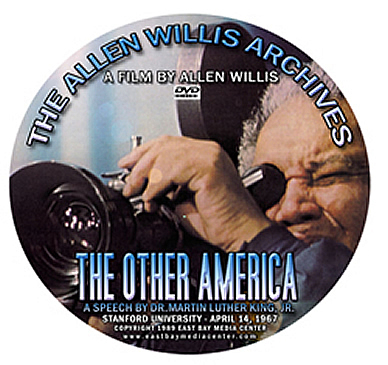
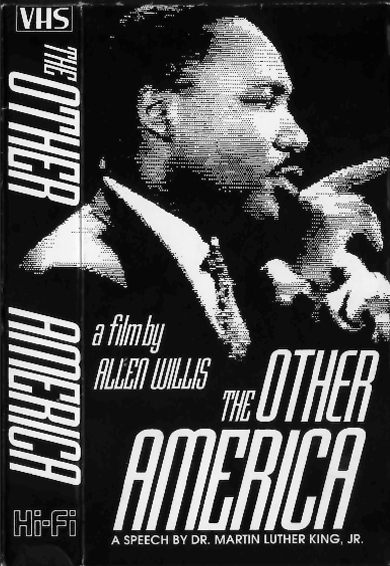
cover
art by Mel Vapour
"Martin Luther King, Jr.'s 'White Backlash' speech, THE OTHER AMERICA, is a classic. It reveals King, the intellectual, coolly analyzing the racist basis of the neo-conservative philosophies, that would influence government policies on the right and left, and the bought media opinion of the 1980's. He foresees the rise of Reaganism and the mainstreaming of the Klan, neo-Nazism, and Yuppie solipsism.
It is a chilling troubled speech made with the background of urban riots, pleas for Black Power, and the Vietnam War. Allen Willis's production of this speech, given at Stanford University in 1967, is masterful, and riveting.
Future Historians will regard this as one of the key speeches in the career of the greatest American statesman of the twentieth century." - Ishmael Reed - 1989
THE OTHER AMERICA is available in VHS and DVD formats at $50.00 each, and can be purchased directly by calling 510.843.3699. Major credit cards and checks acceptable. Please add $6 per video for first class shipping.
Quantity Discounts available for institutions, email: maketv@aol.com
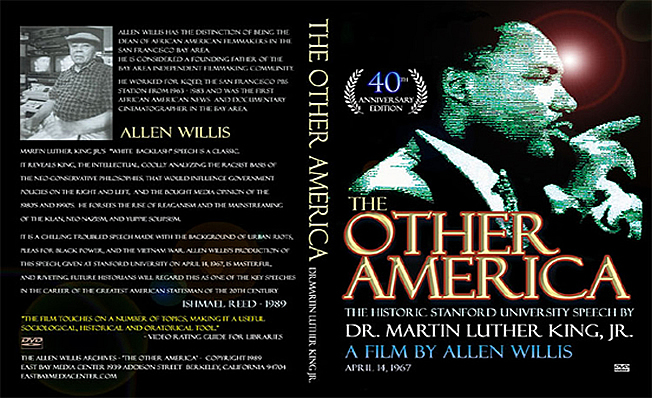
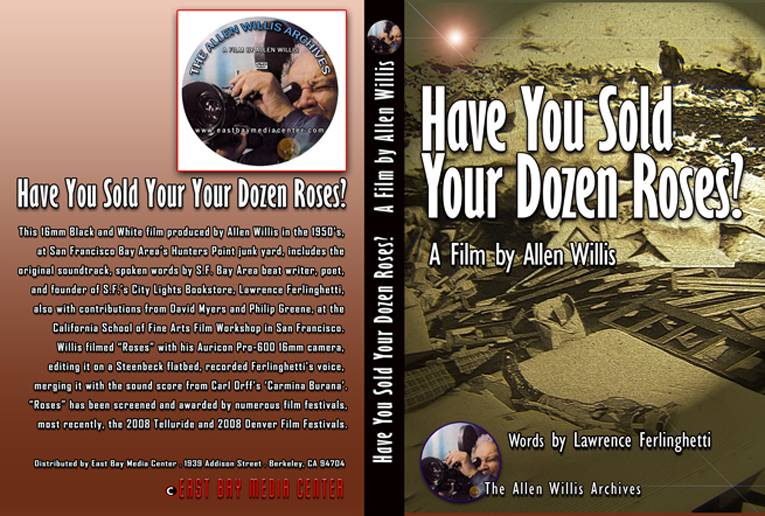
Have You Sold Your Dozen Roses?
DVD - $50.00
Allen Willis's classic 1957, 16mm film featuring words by Lawrence Ferlinghetti is now available.
_________________________________________
ALLEN WILLIS resided in San Francisco, Berkeley, and Oakland, California and was an Honorary Member & Board of Director of EAST BAY MEDIA CENTER in Berkeley, California.
Film Works by ALLEN WILLIS can be purchased in DVD, by contacting EBMC at: 510.843.3699
Allen Willis titles available on DVD or VHS:
Can You Hear Me? - 1975, 28min, 16mm color. Music by Merl Saunders & Rafael Garrett. A blend of Black oral tradition expressed by young people (age 8-18) in their own poetry, songs, and games. A look into the Black mind juxtaposed with a visually poetic treatment of enviornmental influences on their lives. $50.00
The Psychedelic Experience - 1965, 22min, 16mm color. A film by Allen Willis & Jean Millay. Winner of the San Francisco International Film Festival, 1965, Zellerbach Award, 1965. Original soundtrack by Ravi Shankar & Alla Rahka. Original Timothy Leary introduction commentary. This award winning film was the first film broadcasted nationally on the taking of psychedelic drugs. $50.00
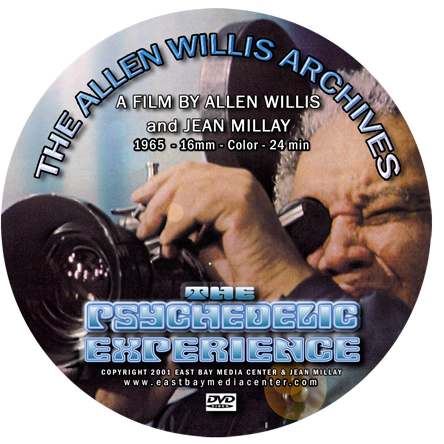
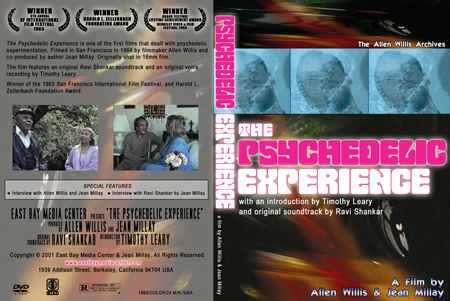
San Francisco Beat - 1970-93, 20min, 16mm color. Beat poet masters Allen Ginsberg, Lawrence Ferlinghetti, and Michael McClure talk about the guru of the beat movement, Jack Kerouac. Ginsberg recites Kerouac's verse and does an incredible Buddhist chant. $50.00
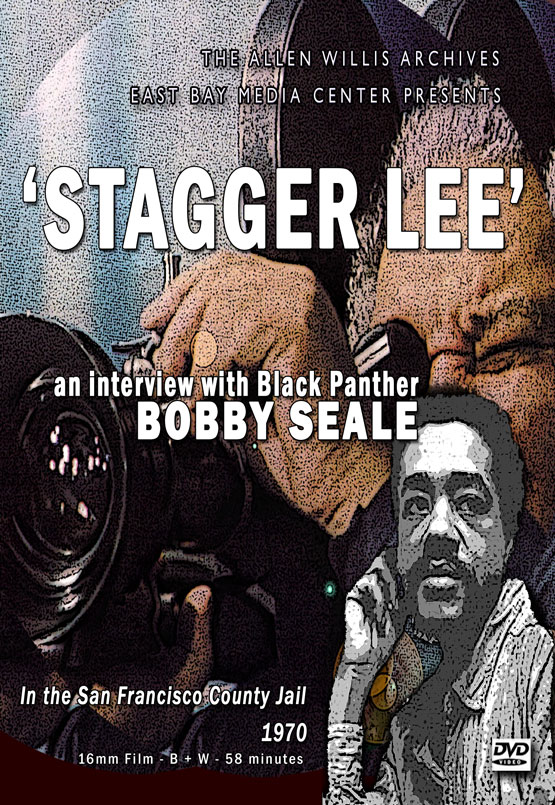
Stagger Lee - 1970, 58min, 16mm b/w. A documentary on Black Panther leader Bobby Seale during his incarceration in the San Francisco County Jail. "A remarkable interview worthy of national award. Remarkable for the sheer humanity which Bobby Seale projected. The filmmaker-editor was KQED's talented Allen Willis." - Ralph J. Gleason, San Francisco Chronicle. $50.00
__________________________________________________
MARTIN LUTHER KING AND THE STRUGGLE FOR ECONOMIC JUSTICE: THE FORTIETH ANNIVERSARY COMMEMORATION OF DR. KING'S "THE OTHER AMERICA" SPEECH AT STANFORD UNIVERSITY - APRIL 15, 2007
Screening of THE OTHER AMERICA by Allen Willis at Stanford University Memorial Auditorium to Commemorate the Fortieth Anniversary of this historic speech, filmed by ALLEN WILLIS.
Sponsored by the AURORA FORUM at Stanford University www.auroraforum.org
Followed by a Public Conversation with:
DR. BERNARD LAFAYETTE, cofounder of SNCC, Director of the Center for Nonviolence and Peace Studies at the University of Rhode Island.
THOMAS JACKSON, Professor of History at the University of North Carolina, Greensboro, andiauthor of From Civil Rights to Human Rights: Martin Luther King, Jr., and the Struggle for Economic Justice.
MARK GONNERMAN, Director of the Aurora Forum.
Video Link below to the event:
http://auroraforum.stanford.edu/event/martin-luther-king-and-economic-justice
__________________________________
Video courtesy of East Bay Media Center - Paul Kealoha Blake
Interview of John Alan by Mel Vapour of East Bay Media Center on Nov. 17, 2008
Mel: we're here today, November 17, 2008, with the great African American filmmaker Allen Willis, also known — his nom de plume — as John Alan, writer, commentator, prognosticator of social views in News & Letters for the past 35-40 years. We're here today to mark the momentous occasion two weeks ago of the election of Barak Obama, the nation's first African American president of all time. We're here with the person who broke the color barrier back in the '50s and '60s with KQED, being the first Black electronic broadcast journalist in the state of California. Good afternoon, Mr. Willis. Thank you for being here.
Alan: Thank you.
Mel: Marking this incredible event that occurred in American politics and American history over the last two years, the landslide mandate of the people of the United States to elect America's first African American president, what are your thoughts on this incredible event?
Alan: I think it is high time that America did get an African American president. But can this Black president be more than all the presidents of the United States? That is the problem we are confronted with today. The prime duty of an American president is to protect and to preserve American capitalism. No president has gone beyond that. I don't know whether president Obama can go beyond that and become a totally different type of president. Not just because he is the first Black president, but because he is the first president to face all the problems facing American capitalism: the inequalities that exist, the racism that exists, and all the things we have suffered through over centuries of presidents in the United States. We have gone through some bad wars during the period of non-Black presidents. We have to wait and look very closely to find out whether this will be a revolutionary change in what an American president is. What do you think about that?
Mel: ... Thank you for that incredible comment. What I find most unique is how you characterized the era of a non-Black president. I think that history will frame the past 200 years of history as that. I think that is an extremely perceptive comment on your part. You made a reference to other presidents being faced with the enormous tasks that Obama is faced with. He is being likened to someone you lived through the era of, Franklin Delano Roosevelt in the '30s. What are your thoughts on any kinds of comparisons between Obama, what he faces today, and what Franklin Delano Roosevelt faced in 1932 and 33.
Alan: Roosevelt faced the Great Depression during that period when millions of Americans were out of work, when poverty existed in every section of the country. He had to face that problem. He set up social programs to feed the unemployed, to house them, etc. that was Roosevelt's problem. Later, of course he went to war. I was drafted during that period.
Mel: as someone who has lived through that era, did you feel that the WPA projects that Roosevelt and the Congress enacted helped stimulate the economy? Bring people back to jobs, and get the economy moving? Or was it, as you indicated before, that getting out of the Depression meant getting into World War II?
Alan: What people got during the Depression was relief. They set up those institutions to feed and to house the people that were unemployed, that had no place to live and so forth. These were the social programs that came out of the Roosevelt administration. They had to come. There were tremendous movements against this type of life. There were organized by the trade unions, by African Americans and other groups who were being totally oppressed, suppressed you might say, by that great unemployment. Of course, we eventually got out of that when Roosevelt went to war. That was the solution to one of the horrible depressions that United States went through.
Mel: Thomas Friedman, one of the contemporary authors has indicated that we have never gotten out of the Great Depression, that we just simply have gone into all these different wars: WWII, Korea, Vietnam, Iraq, Afghanistan, and that these conditions have never really changed since the Roosevelt era. We have had great economic times since then, of course, but it seems that America is on a destined path of resolving economic problems by going to war.
Alan: Yes, I think that's true. But I don't think this country can resolve the problem by going to war forever. It's going to have to find some new solution to this problem of unemployment, poverty, and even American racism, which has not been wiped out. Maybe we have to be very honest that it is capitalism itself that brings these things into being. Whether the president is liberal or conservative, whether he's old or young, it is the very nature of the system that determines politics and the types of social movements that make changes in the American economy. I think that social movements have been more important than presidents in the United States. They have brought about changes that no president was capable of thinking about or bringing into being. The greatness of America depends on the activity of American people, American workers and so forth. These are the people that have made this county great, not the man who sits in the White House.
Mel: Well said, sir. Your point is extremely well taken. There seems to be a remarkable revolution occurring within this country, which we witnessed two weeks ago with the 8 1/2 to 9 million vote margin, that Obama had and the fact that he had 364 electoral college votes and beat the other candidate, John McCain, by close to 200 electoral college votes. There appears to be this movement that you speak of, of the people. The resounding echo of the ground-up mass movement of people that are completely disaffected with the mainstream. It's just as you said, we've seen this rise up from the masses. This is not only a man, but it is a movement and it is the movement that has brought about change. On the point that you had made earlier, that the president and in effect Obama, merely has to reflect and protect capitalism, do you see someone like Obama moving from Left to center and from center to Right once he takes office?
Alan: That could happen. I am not saying he is going to be guilty of doing that, but it could happen. The main interest of this country has to be supported by the president, regardless of what his race is. And we know what the main interest of this country is, it's a country of big corporations, of people who are constantly looking for oil in the colonial world, it's a country that has to expand its capital in order to exist. These are the very nature of the system itself irregardless of what the president may...
Mel: or of his political ideology.
Alan: So I don't have very much to offer other than that. In other words, what I am saying is that I am not expecting that you're going to have a president, whether he is white or Black, who is going to make any great revolutionary changes in this country. That has been true through the entire history of this country. Unless you have a tremendous revolution somewhere. The revolution doesn't come from the White House.
Mel: Well, we’ve had presidents who were usually centrist, but they always appear to veer to the right, always. This gentleman is refreshing, however, in that he is coming from the Left, as a community organizer from the South side of Chicago where you lived for 2-25 years. You know that neighborhood, man. Can he be the first president not to veer to the right of center and stay center and to the left? I think that's the ultimate test for this guy.
Alan: It's the ultimate test, but how is that ultimate test tested? And when is it tested?
Mel: I think it's tested January 21, 2009. This young guy is going to be on the hot seat. Your prediction is something that we all look to in the future. Whether or not he can sustain this groundswell movement that he has created, stay true to his vision of trying to get people employment, try to change the direction of the country from reliance of foreign oil to being more green and being more self-sustaining and ecologically sound. It is quite a revolution that this man is proposing. I thank you for your insights today, Mr. Willis. Is there anything else that you would like to add?
Alan: Well, what I would like to say in conclusion, is that we have never had a real revolutionary figure in the White House since the war which separated this country from England. The whole purpose and history of this country has been to accumulate wealth and power. Some people will say that the interest is to achieve freedom and democracy. But freedom and democracy come forward only when masses of people fight for them. I don't think we have an example of the White House leading any such movement. Now, it might happen, but it has not yet happened in American history. That is a view of a man who is 92 years old. I have lived through the Great Depression and I have seen that the relief has come when the tremendous mass forces demanded and got it. They didn't come from Congress. No great changes ever come from Congress or the White House. It has always come from the great masses of people and their own struggle for freedom, security and recognition. And that's about all that I have to say.
Mel: I think those are some brilliant words from you, Mr. Willis. I think that you have maintained throughout your career, this due diligence towards economic and social justice. Your views will hopefully be published quite soon with the amalgamation of your articles from 1970 to the present. Your insights into these United States have been really appreciated here today and I thank you very much.
WILLIS - VAPOUR Interview - Copyright 2009 EAST BAY MEDIA CENTER
___________________________
ALLEN WILLIS CURRICULUM VITAE
Born in 1916, ALLEN WILLIS spent his formative years in the Washington, DC area, formulating his political and cultural roots with Langston Hughes, and the many D.C. intellectuals and artists of the '30's. He was attracted to socialist ideas and forums. In 1937 he met Raya Dunayevskaya, the Marxist-Humanist philosopher, with whom he had a life-long association.
He moved to Chicago in the 1940's, where he participated in civil rights struggles of the time, like opposing the restrictive covenants used to enforce segregation in housing, and gave service in the Armed Forces during World War Two.
He came to the Bay Area in the early 1950's with his wife Lillian.
He received degrees from Bowie Normal College and the CALIFORNIA SCHOOL of FINE ARTS in San Francisco and studied with photographers Ansel Adams, Minor White and David Johnson.
In the early 1950's, he made his first three experimental films with Melvin Van Peebles.
In 1957, he founded the BAY AREA PHOTOGRAPHERS ASSOCIATION.
In 1955, he produced, directed, filmed and edited, "HAVE YOU SOLD YOUR DOZEN ROSES",
a 16mm film collaboration with San Francisco poet Lawrence Ferlinghetti.
In 1963, he was the Director of KQED's Film Department in San Francisco, and has the distinction of being the First African American in Broadcast Journalism in the State of California.
In 1965, he won the prestigious Zellerbach Award at the San Francisco International Film Festival for his film "THE PSYCHEDELIC EXPERIENCE", the first film to deal with the topic of psychedelic drugs.
In 1967, he received the NATIONAL EDUCATIONAL TELEVISION AWARD for "DRUGS IN THE TENDERLOIN".
From 1970 - 1975, he co-developed KQED's Newsroom, as cameraman and film editor.
In 1973, he received the Peabody Award for his documentary "THE GREAT CALIFORNIA LAND GRAB".
In 1974 & 1975 he was nominated for two EMMY AWARDS for his documentaries "PARA-PSYCHOLGY" and "CAN YOU HEAR ME?" and won the EMMY for his Documentary "1,001 Days".
He has been tributed by the SAN FRANCISCO MUSEUM OF MODERN ART for his important contributions to Bay Area Filmmaking in 1980.
The BLACK FILMMAKERS HALL OF FAME TRIBUTE in 1980.
EAST BAY MEDIA CENTER'S TRIBUTE in 1989 and the BERKELEY VIDEO & FILM FESTIVAL
"LIFETIME ACHIEVEMENT AWARD” for his contributions to American Cinema and for his ALLEN WILLIS SCHOLARSHIP FUND in 2004.
Since his retirement in the '80's he has produced three films and continues to write his monthly essay 'BLACK/RED VIEW" in NEWS AND LETTERS, under the nome de plume, JOHN ALAN.
NEWSREEL has said of ALLEN WILLIS,
"He is one of the unknown geniuses of the documentary film".
The late Ralph Gleason characterized ALLEN WILLIS’s' film of Bobby Seale,
"STAGGER LEE", ..."a remarkable interview worthy of national awards and remarkable for it's sheer humanity".
King historian, Paul Lee, has written, “Allen Willis is the most significant American Marxist-Humanist writer of the twentieth century.”
In the Bay Area Film Community, ALLEN WILLIS has the distinction of being known as
THE DEAN OF AFRICAN AMERICAN FILMMAKERS.
His other life as an activist-thinker is reflected in his column "Black/Red View", written from 1970 until 2008 in the Marxist-Humanist publication NEWS AND LETTERS, under the nome de plume, JOHN ALAN. He authored Dialectics of Black Freedom Struggles ( 2003 ) and co-authored Frantz Fanon, Soweto and American Black Thought ( 1978, with an enlarged edition in 1986 ).

